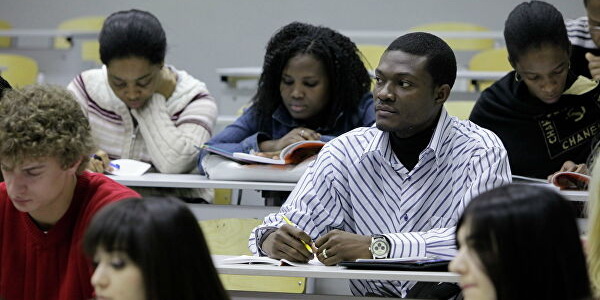Summer schools attract international applicants to Russian universities

In recent years, international summer and winter schools at Russian universities have become an effective tool for attracting foreign applicants. Anzhela Dolzhikova, Vice-Rector for Supplementary Education at Peoples' Friendship University of Russia (RUDN), talks about the functions and best practices of these schools.
Summer and winter schools are a kind of supplementary education programs. These schools are short-term academic events which combine practice-oriented learning and educational tourism (as a rule, on holidays).
Summer and winter schools are held for various categories of participants - from school students to specialists in different fields. Today there are career guidance and educational summer sessions for school students, schools for young scientists, journalists, tutorial summer schools, narrow-focused scientific schools.
In many countries additional educational services for foreigners have become an important tool for solving commercial and cultural tasks, as the market of these services is very big and continues to grow.
Summer and winter schools are, first of all, an attractive and competitive educational environment for international youth professional communication.
Success of such schools depends on whether a university can create an attractive environment for attendees, from comfortable living conditions to an exciting cultural program.
Summer and winter schools can be organized not only by universities, but also by private educational organizations, governmental and non-governmental organizations, corporations that carry out educational activities.
Each school strives to cover as many interested attendees as possible among professionals and young people from various countries. Such schools attract attention to the Russian market of educational services, scientific and cultural achievements, joint projects. They also help develop and promote the positive image of the country, strengthen the positions of the Russian language and the Russian world abroad.
International summer schools successfully promote educational programs of universities and enhance their recognizability, help them develop bilateral contacts with partner organizations. Certainly, all this improves academic reputation of universities and determines their prestige.
A successful summer or winter school not only improves the university image, but also raises the status of the Russian education system in general, helping attract international applicants to Russian universities.
It is important to remember that there is fierce competition between summer schools all over the world. British summer schools are leaders in this segment. Therefore, universities need to focus educational services taking into account market needs, look for effective tools for managing resources, adopt and disseminate best practices, create competitive and sought-after programs.
Today there is a need to create methodological recommendations for universities for implementation of summer and winter school programs for foreign citizens. This will help qualitatively change the work of the Russian education system in this area.
For several years, RUDN University has been holding the International summer school "Monitoring, Modeling and Management of Urban Soils."
Summer School 2019 was devoted to the theme "Anthropogenic and Natural Landscapes and Soils of European Russia: from Sea to Sea". Its program included the field trip en route from the Barents Sea to the Sea of Azov. The participants covered more than 3,000 km, crossed six regions of Russia and five natural zones - from the forest-tundra of the Kola Peninsula to the dry steppes of the Rostov Region.
The school enrolled 34 attendees from Russia, Germany, Italy, China, the USA, and France. It is included in the curricula of Technical University of Berlin and City University of New York.
Joint schools held by some universities are an interesting experience. For example, the three-week winter school "Two Capitals" to be held in 2019 by Peter the Great St.Petersburg Polytechnic University (SPbPU) and RUDN University will provide an opportunity for attendees to visit two capitals of Russia during one trip. The program includes two weeks of study at SPbPU in one of 15 areas and a week of Russian language study in Moscow, at RUDN, as well as an extensive cultural program.
The language volunteering camp in Pushkin Mountains "Curved Seashore " of Pskov State University is an example of best practices for organizing summer schools for foreign school students. The program provides an opportunity for children studying Russian to immerse in the language environment, get acquainted with life and legacy of Alexander Pushkin, everyday life and culture of the Russian country estate, take part in the events held at the Mikhailovskoe Museum Preserve.